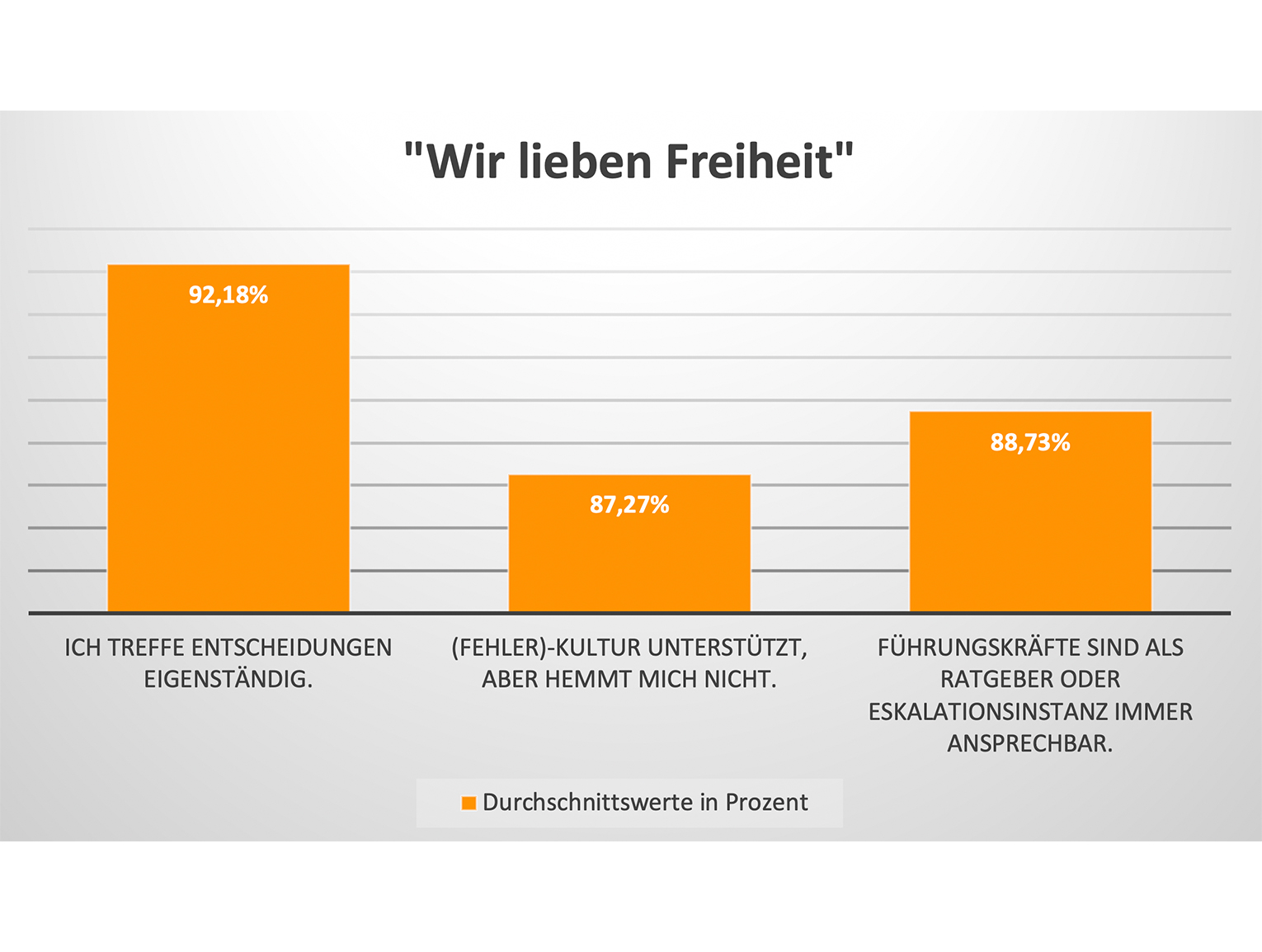We at the digitalsee also have principles, which we would like to present here one by one. We start with principle 1.
#1 - We love freedom.
We believe that employees usually know best how to organise and structure their work. In return, they have as much freedom as they need and want.
Staff and teams make as many decisions as possible in their area of responsibility and involve their managers when they need support.
In our country, it is not the main task of managers to make decisions. Of course, they do that too, but mostly they make sure that the staff and teams have all the information, resources and competences they need to make the necessary decisions themselves. To this end, our managers are always approachable, they are advisors and, if necessary, they are also escalators. A manager who likes to micromanage and brag about how many decisions he or she made yesterday is wrong with us.
We trust our employees and teams to make good decisions for the benefit of the company. We expect each employee and team to make these decisions thoughtfully and to seek help and support whenever necessary. Every decision must be measured against one simple rule: "Act in the best interests of the company.
Those who make decisions will also make wrong decisions. Because we do a lot and try many things in order to be excellent, we always make wrong decisions. That's okay and unavoidable. The important thing is not to hide wrong decisions, but to deal with them openly and correct them as quickly as possible.
From theory to practice.
How well do we succeed in implementing our principle as a young service company? We asked our employees.
We addressed three statements to be evaluated, including a comment option, to employees and the company's managers, who each subjectively evaluated the implementation of the principle.
The survey shows that there is mutual trust as a basis for independent decisions. Error culture was considered rather fundamentally, since - due to our rather short existence - we have not yet encountered any real faux pas. The comment of one of the lowest evaluations makes this visible: "This still has to prove itself in reality, i.e. when massive mistakes really happen. How do we deal with it then? How do we learn from it?". Employees rated the responsiveness of managers at 95% - managers, for their part, see potential for improvement with an average of 62.5%.
We were able to identify the topics of feedback and information flow as an area for action. We will make improvements here.
The first survey - and we think: a presentable result...with room for improvement!
The principles should give us - like the signals of a lighthouse on a rough sea - orientation and security. We seem to be succeeding in this.

